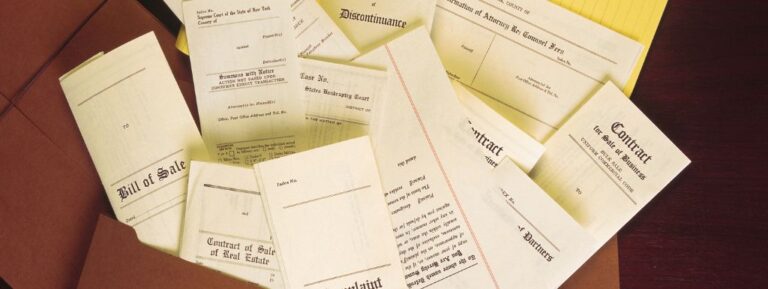Selling a business can be a complex, exhausting and difficult process. Preparation for a sale can minimise if not avoid many of those frustrations.
Getting your records in Order
Any serious buyer will want to conduct a due diligence of the business and see:
- Full financial records and trading history over say 3-5 years;
- any necessary documents such as leases, employment contracts, supplier agreements, sales contracts, contractor agreements;
- any relevant and necessary government consents and approval required;
- intellectual property records such as patents, trademarks, registered designs.
Any shortcomings in being able to provide these will lead to suspicion and price discounting or rejection of the transaction.
Take the time to consult with your accountant and lawyer to get these in order so that a complete and accurate set of records can be disclosed at the right time. Gaps or omissions and inaccuracies can at best result in delays or a lost sale, and at worst, an action for damages if the sale proceeds, and the buyer is not happy.
Of course, some of these records should only be disclosed in detail upon a confidential basis once a contract is signed. Information which is commercially valuable must be protected by a confidentiality and non-disclosure agreement which also requires the return of all copies if the sale does not proceed.
Formalising key arrangements
Some key agreements and contracts which should be reviewed to determine currency include property leases, contractor agreements and supplier agreements. If these have expired or are close to an expiration date, these should be re-negotiated or renewed. Selling a business in leased premises where the lease has expired or is close to expiry will only diminish the value of the business. Similarly, if there are key staff or contractors on agreements which have expired or are due to expire, these should be identified, and renewed. Loss of a key member of staff can also have a detrimental effect on value of a business. Consider the need to have robust post-employment restraints in any key staff contracts to protect the buyer’s goodwill value, and your purchase price.
Identify the actual assets being sold
A sale contract must identify with detail exactly what is being sold. Take the time to identify those assets which are owned and can be sold. Separate out those which are not owned and cannot be sold, but which may be assigned/transferred with third party consent. Ensure that you know and can comply with such consents. For example, leased premises or leased plant and equipment cannot be sold, and will require landlord or financier consent, on specific terms and conditions. Knowing what those conditions and terms are in advance can save time and money.
The nature of what is included in a sale is very important. It must be documented precisely and exactly. The usual items and assets sold in a business sale will expressly include the following:
- goodwill;
- plant and equipment;
- stock;
- key contracts;
- intellectual property;
- communication services/rights (for example, telephone numbers and email addresses);
- website;
- property leases and equipment leases; and
- customer deposits and work in progress.
Post- Sale elements
Consideration needs to be given to important post-sale issues. Some of these will include:
- Restraint of trade: reasonableness;
- Debtors-collection and benefit;
- Release of any securities over any of the assets sold,
- employee entitlements-should be calculated and adjusted on settlement; and
- any credit guarantees to be revoked-to avoid unforeseen liability.
Price determination
Obviously, you need some idea of price range. Most businesses sell on a multiple of net earnings. The multiple applied will depend upon many factors. Addressing some of those factors before the sale, identifying and eliminating the negative ones, can result in a higher multiplier and so a better price. For example, renewing a lease or locking in key employees to robust employment contracts, can be 2 simple steps to take to add value to a business. Similarly, locking or renewing any sales contracts, especially with terms covering future supply and pricing of goods or services can have a strong and positive effect upon the price paid.
Taxing issues
A seller should also understand the way that the sale price will be dealt with from a tax perspective. This can determine the timing of the sale, what the sale price of the business and individual components or assets should be, and the impact any resultant tax will have on estate and retirement planning. These factors can significantly effect and determine how to structure the transaction.
The impact of:
1. GST;
2. CGT – applies to assets such as goodwill and intellectual property and special concessions and rule may apply;
3. income tax – payable in respect of the sale of trading stock and plant and equipment;
can all be critical in setting the price of the business. Here, advice should be sought from a good tax accountant preferably one familiar with the business history, and also one able to advise on future estate planning if a retirement is to follow the sale.
Stamp duty is usually, by express contractual terms, generally an issue for the buyer. Any avoidance of these obligations may however, become a seller’s liability.
Getting a contract prepared.
Consulting with your lawyer to discuss the sale and the terms of the contract at an early stage can result in a more streamlined sale process and afford you the best protection. Reviewing all aspects of a sale before actually going to contract can help minimise or eliminate any likely obstacles or impediments to a sale. A pre-sale audit of legal issues including some of the key documents for instance will identify areas of concern for a buyer, give you time to rectify and correct those issues and may end up saving you a lot of money in the long run.
Contact us
We are experienced and expert in business sales and acquisitions. Contact us if you want any help or assistance.



